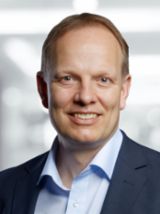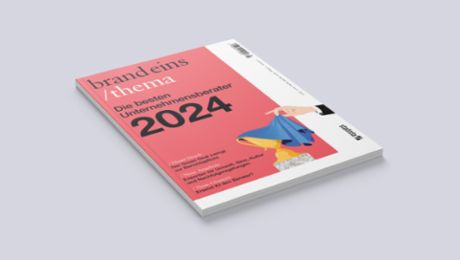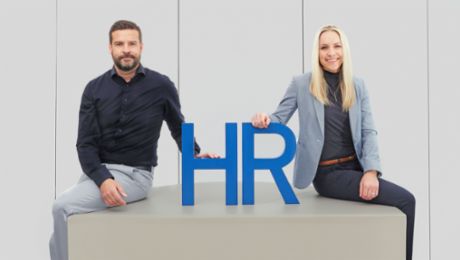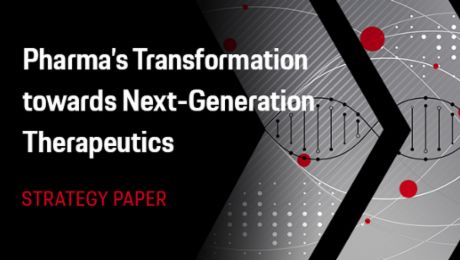The Volkswagen AG is tackling the enormous challenge of mastering the IT age. And you, Ms. Stars, are the Management Board member in charge of IT and therefore also of the Group’s digital transformation. How does one handle such a challenging task?
When I came to Volkswagen in 2022, I started by giving myself three months to gain a better understanding of the company and its structures. It was quickly clear to me that the Volkswagen AG has many strengths. First and foremost, we have strong brands, outstanding products, and superbly motivated employees. One big challenge for digitalization, however, has to do with how a company works. Volkswagen is in the midst of transforming itself into a software-oriented mobility provider. Our basis had thus far consisted of developing hardware, which is associated with long development cycles. That means setting a final result and working to achieve precisely that result over a long period of time. Software, however, and ultimately digitalization itself, function differently. It’s crucial to understand the architecture and define the goal. Then to develop in short, agile cycles. Results come all the time. Right now we’re in this phase of changing how we think.
Does that mean software used to be developed like new car models?
Our company’s IT systems show an increase in complexity over time. So right in the first year, we took on the most important digitalization projects underway. Some of them were scheduled to run for several years. Because speed is one of the keys to success in IT, we started slicing up the projects in order to give our business a series of measurable results. That fosters a new type of flexibility. At the same time, we’re structuring ourselves more effectively as an IT organization, picking up our pace, looking for synergies, and reducing bureaucracy.
Did we understand you correctly to say you’re trying to keep the steps of the transformation small?
Many small steps advance us faster than one big leap. If for no other reason than to examine our progress and make short-term adjustments.
So no more Big Bang?
It’s better to move forward in agile cycles. We learn faster, and if needed can also modify our course at short notice.
Do you think Volkswagen can become one of the leading players in IT?
We’re concentrating on delivering. And we’re getting better at it all the time. Here’s one example: together with Gunnar Kilian, our Management Board member in charge of Human Resources, we’re introducing the “Hello Success” HR software worldwide. We’ve set an industry benchmark here. Other companies are contacting us to see how we’re managing skills and roles at the company and supporting employee development on the IT side.

You studied computer science at the University of Magdeburg. That was unusual for a young woman even in the 1990s. What sparked your interest in that area?
IT was still a new field at the time. And I’m passionately interested in MINT subjects. I’ve always loved them. They’re also the way of the future.
IT wasn’t a career move for you?
It was a decision of the heart. I grew up in what was East Germany. I had the impression that computer science would give me a lot of options. That was the best decision I could have made.
Can you write programs?
Sure, and sometimes I do that with my children. We use Scratch and Python. In our home I’m the expert in those languages…
There’s a certain pride in your voice…
(laughs) That’s true. When my kids program something and it doesn’t work, they ask me to take a look. And we go through it step by step and I explain where the program might be stuck in an infinite loop. Here, too, a lot of small steps are what lead to a big success.
You’ve worked at a veritable who’s who of German companies: Bertelsmann, Thyssen-Krupp, the German stock exchange, now Volkswagen — and Hewlett-Packard was in there too. A storybook career trajectory. Was that planned?
Some of it was planned, and some was simply chance. For me, what’s important is to work in an interesting environment. That sustains, inspires, and challenges me. When Volkswagen approached me, my first thought was, ‘What can I contribute?’ Then I looked at the strategy and thought, ‘Wow, this will be a huge transformation to electric mobility, greater sustainability, and software and data-driven products. That’s exciting!’ I wanted to be a part of it.
Germany’s automotive industry needs less ‘petrol in its veins’ and more data. But not everyone might agree. Was it hard to make the move there as a woman without an automotive background?
Volkswagen welcomed me very warmly. We all understand that digitalization is a major factor in success when it comes to enhancing speed, quality, and efficiency. Precisely that is what I’m focusing on, together with my team.
Do you view yourself more as a strategist or a technician?
I always keep my eye on the big picture. That’s my job. But when needed, I get into the technical details too. I sit down with my teams and we work together to find solutions. Success is ultimately always a matter of teamwork.
Do you take these deep dives on a regular basis?
I do. It’s very important. You can’t lead a big IT organization if you don’t want to get into the finer details and technical discussions yourself.
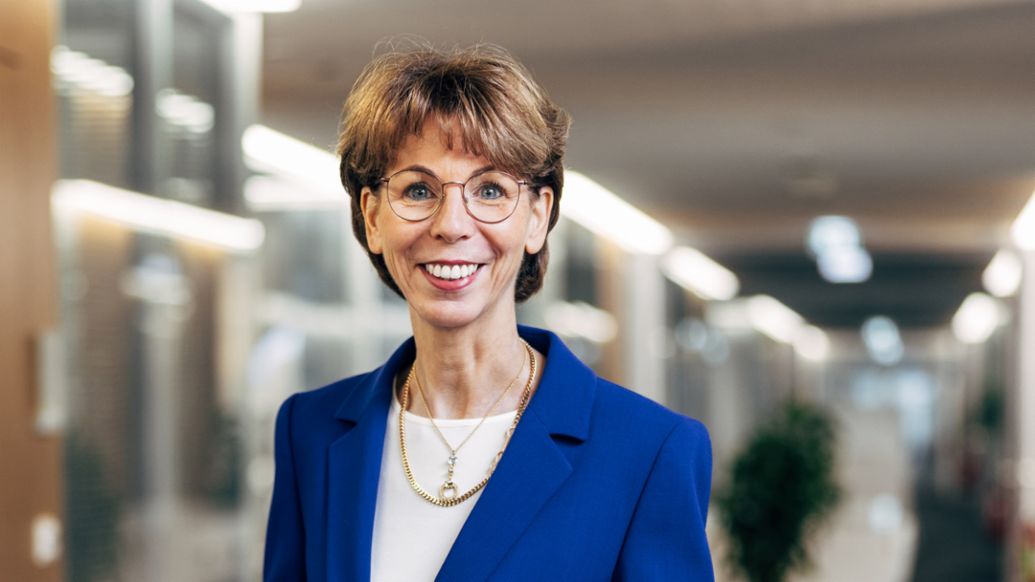
Do your employees occasionally try to test you?
Sure, that happens. But I’m up for it. It’s a challenge I want to have.
How exactly does an IT director work — in an office with augmented reality and supercomputers?
We have both of those at Volkswagen, of course, but my laptop and iPad are more important to me. I carry them around all the time (laughs).
You don’t have a magic bullet, or AI, or something to assist you?
Not yet. Recently I looked at the latest metaverse devices, which can show faces extremely realistically. That’s impressive. But I don’t see us using this technology just yet on a day-to-day basis.
Why not?
You have to keep your eye on the goal. Small lighthouse projects and gadgets are great, but overall we have to become faster and more efficient, utilize synergies, and add concrete value to the business. In short, we have to achieve the best results for our company.
How does AI help with these tasks? Companies like OpenAI are revolutionary and disruptive. How can an automotive group with around 670,000 employees keep up here?
AI is already helping us in very concrete terms to lower costs, further optimize our energy and material use, and improve everyday routines for many of our employees. It has enormous potential, but doesn’t work everywhere. That’s why we’re applying a clear strategy to the use of AI.
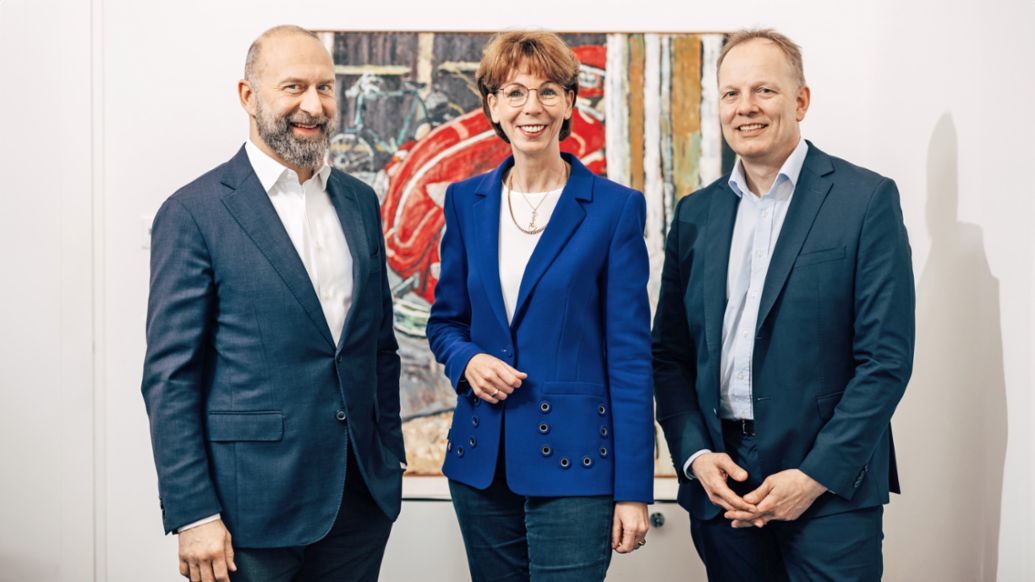
Employee representatives often assume that expanding IT necessarily means cutting jobs, because computers will take over what people do. Is that true?
This effect hasn’t shown itself since computers were introduced to companies. But we take these concerns seriously. It’s important to have our people on board and informed, and to be transparent. That’s why we’ve launched a Group-wide initiative called “You and AI.” We want to provide comprehensive information about AI to our employees, increase technical knowledge, illustrate practical examples, provide training and educational opportunities — and, above all, to demonstrate this technology’s opportunities and potential to everyone. Despite all the excitement, AI technology is not an end in itself. It cannot replace our employees’ joy in innovation, their powers of discernment, or their decision-making abilities.
So is AI a game changer for Volkswagen or not?
We’ve already successfully introduced a large number of AI solutions. Hundreds of data and AI applications are already productive for the company, or about to be. And the pace is really quick there! I’d be careful with the game-changer notion, though. Here, too, it’s better to proceed step by step.
And finally: If you had three wishes for Volkswagen, what would they be?
… that we move forward strongly with digitalization. That we continue to cut back on bureaucracy. And that we look to the future — that we move into the future with courage and resolve.
Info
Text first published in Porsche Consulting Magazine.

